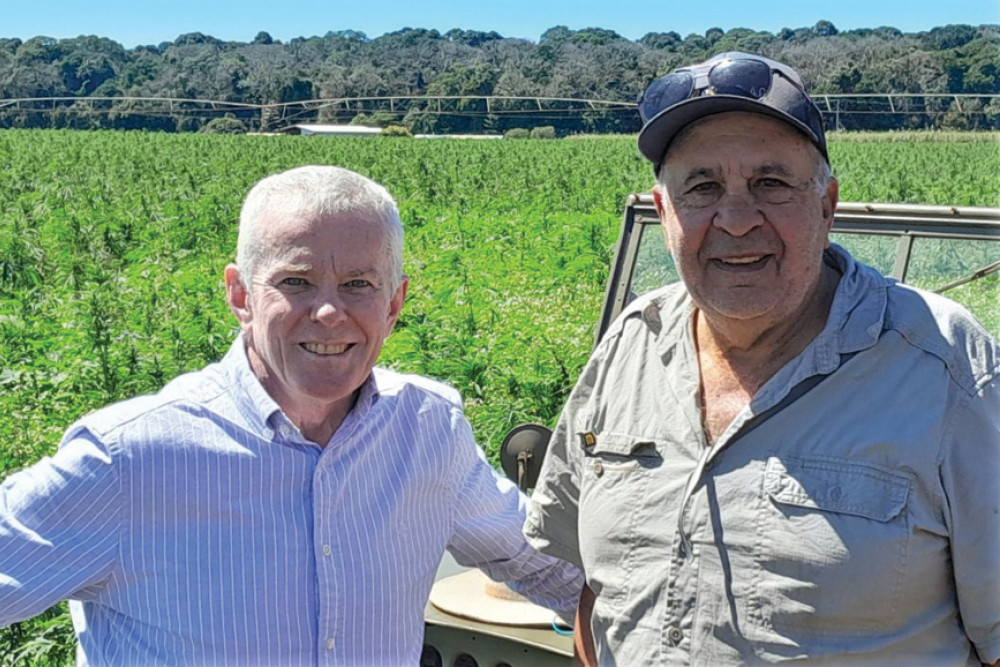Community & Business
30 August, 2023
QLD Senator visits ‘crop of the future’
AN Atherton Tablelands crop has captured the interest of Senator Malcolm Roberts who took time out recently to visit Tolga farmer Joe Trimarchi’s Redhill Farming operation to inspect his hemp crop.

“The Senator is very interested in hemp and hemp products and its potential as an emerging crop on the Tablelands,” Joe said.
Senator Roberts said hemp has been demonised alongside cannabis however they were very different plants.
“Hemp is an amazing crop providing food, fibre and oils that can replace synthetic and imported products,” Senator Roberts said.
“Hemp has a reputation for being hard to grow in Far North Queensland, I wanted to talk with Joe and see the results he is getting.
“The visit showed that hemp is a viable crop for the Tablelands and I hope more farmers take another look at hemp as a viable commercial crop.”
The hemp is being grown by Joe as a seed crop for Ananda Food, a division of Ecofibre.
He first selected it as a break or a rotation crop to grow with sugarcane due to its many benefits pertaining to enhancing soil health.
“Hemp adds nutritional value to the soil while balancing the soil ecology,” Joe said.
With the first plantings undertaken in 2016, hemp has now been grown on the Trimarchi property for seven years.
It is grown under Biosecurity Queensland’s strict licensing arrangements and protocols.
“I see a great potential and a great future with it,” Joe said.
Hemp has the flexibility of being able to be planted at different times of the year on the Atherton Tablelands. There are winter and summer varieties.
“I believe that the Atherton Tablelands is the original Garden of Eden,” Joe said.
Hemp is grown for seed, fibre and pharmaceutical purposes. A relatively quick growing crop, it takes around 120 days from planting to harvesting with harvesting occurring through the use of a grain harvester.
After the seed is harvested, the resulting fibre is baled and is subsequently processed into biochar which is a fertiliser which has soil conditioning properties and contributes to carbon credits.
Biochar improves plant health through neutralising acidity, providing improved water and nutrient retention (especially in sandy soils) and improving drainage and aeration.
Each fragment can also provide a habitat for beneficial soil microbes.
The making of biochar is a way of denaturing the hemp which then allows it to be taken off the property due to strict biosecurity regulations.
Hemp seeds are considered to be a superfood.
They have a rich nutritional profile being high in essential fatty acids and provide a wide range of immense health benefits which include protecting the brain, boosting heart health, improving skin conditions as well as supporting a healthy immune system.
Hemp seeds can also help to reduce the risk of chronic diseases such as cancer and heart disease. Additionally, hemp is known to be helpful in treating anxiety, depression, and even epilepsy.
The resulting hemp oil which is produced from the seed is gaining increasing popularity for use in both humans and animals.
Joe feels that growing hemp is a modern outlook for the farming of the future.
“I believe that we have not even scratched the surface yet as far as the benefits of hemp products are concerned,” Joe added.


